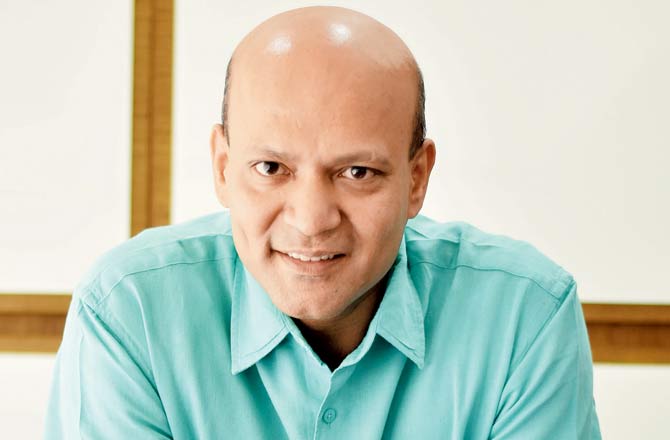As all eyes were glued to the dramatic potboiler that led to a new government in Maharashtra, trust emerged as a defining factor.

Sharad Pawar in discussion with nephew Ajit Pawar
For all its dramatic twists and turns, the most aggrieved conversations that arose from the recent political crisis in Maharashtra were not about which party eventually came to rule — they were about how voters' trust in their government and in the democratic process had been decimated. And while the dust is still settling around Uddhav Thackeray stepping into the role as the state's new Chief Minister, the crisis has highlighted, once again, just how important a role of trust plays in ensuring stable governance.
Corporate India too is witness to numerous instances when a lack of trust in the leadership of organisations either led stakeholders to undertake major restructuring efforts or the organisation shuttering its doors altogether. In fact, a 2019 Gallup poll went on to state that business around the world is suffering from a 'trust crisis', with two-thirds of respondents agreeing that corruption is widespread in businesses.

Narendra Goidaniz
Narendra Goidani, a life coach and founder of Life School, explains, "In today's competitive, globalised and highly interconnected world, trust is more important than ever to ensure long-term business success and sustainability for organisations. Integrity is rapidly becoming the ultimate brand attribute, not just for enterprises but for individuals as well.
As an employee, your success will always depend on whether or not your employer considers you trustworthy." However, living as we do in a fiercely competitive environment, where ambitious workers must often go to great lengths to distinguish themselves from their peers, learning to scale the corporate ladder without compromising trust is an art all employees must master.

Karan Talreja
1 Ambition, not greed
When most people mention ambition, they're usually talking about greed, says Goidani. It's important to understand that ambition isn't a dirty word — every leader who has a vision and is keen to achieve it is ambitious. The difference between ambition and greed is that the first is usually a focused goal that is beneficial to all stakeholders. There is no selfishness associated with ambition, he explains. Greed is the opposite.
2 Understand the 3 Cs
"Most people use the word 'trust' as a blanket term, not realising that trust is made up of four components — character, courage (the ability to say yes or no) and capability. The absence of any one element will compromise your organisation's trust in you," says Goidani. For instance, while your manager understands that your judgment is governed by ambition and not greed and finds you to be of sound character, if you lack the necessary capabilities or skill set(s), he may not entrust you with a higher position or larger responsibilities. It is important for employees to be cognisant of all these attributes when endeavouring to earn the organisation's trust, he adds.

Fatima Agarkar
3 The right people
One of the biggest reasons for a lack of trust in organisations, says Karan Talreja, CEO and co-founder of Reset, is a basic mismatch in core ideals. "It's important to work with people who have the same work ethic and values that you do. Employers and entrepreneurs must focus on defining their company's vision, goal and ethics before they select key employees. This way, they will instantly know whether the person they are recruiting is the right fit for their organisation. For instance, when setting up a business, the leadership may either be oriented on transactional (numbers and profits) or contributional (community-focused) goals. Each is right in its own way. However, there must be an alignment between all employees to ensure trust," he says.
4 Ask a mentor
Many employees struggle with calibrating the difference between an acceptable risk and an outright breach of the organisation's trust, says business coach and mentor Gemini Dhar. In such a scenario, it's important to ask the right person for advice. "Don't discuss your dilemma with too many peers or friends, who may misguide you in their own ignorance. Instead, seek the counsel of a trusted mentor — this could be a senior in your own organisation or industry," she says.

Gautam Singhvi
5 Let go of your ego
"I've found that many start-ups falter with their first taste of success because one member of the core team has become egotistic and wants to be recognised as the major contributor. This may lead him/her to bypass the decisions made by other stakeholders and lose trust, in the process. It's important for every employee to acknowledge that the organisation comes first. Every decision made must be for the benefit of the organisation," says Talreja. In the end, every important decision must be governed by a cost-benefit analysis, says Fatima Agarkar, co-founder of KA EduAssociates.
6 Take accountability
When faced with a scenario where you stand to lose the management's trust, Dhar suggests first taking accountability for your actions and backing your words up with action. "Understand that if you are not able to offer a solution for the damage or losses that your organisation has suffered because of your actions, it will be difficult for the leadership to rebuild their trust in you. In such a scenario, it is best to cut your losses, learn from the experience and start again," she says.

Gemini Dhar
7 Think long-term
"When one of our most senior employees recently left our organisation to join a competitor for a more lucrative offer, he resorted to unethical practices to gain an edge in his new workplace," says Gautam Singhvi, managing director of The Diamond Factory. "From sharing our database to bad-mouthing our business, he tried it all. While we were able to recoup thanks to the trust we had built with our clients, his actions negatively affected his reputation at the new workplace. Our clients realised that the individual was being unprofessional and chose to disassociate with him." Godani adds, "Even when you do choose to exit an organisation for a better offer, don't leave in a manner that damages your reputation in the industry. Word goes around and your future employers will be more reluctant to hire you or assign important roles if they recognise that you have behaved unethically in the past."
Catch up on all the latest Mumbai news, crime news, current affairs, and also a complete guide on Mumbai from food to things to do and events across the city here. Also download the new mid-day Android and iOS apps to get latest updates
 Subscribe today by clicking the link and stay updated with the latest news!" Click here!
Subscribe today by clicking the link and stay updated with the latest news!" Click here!









